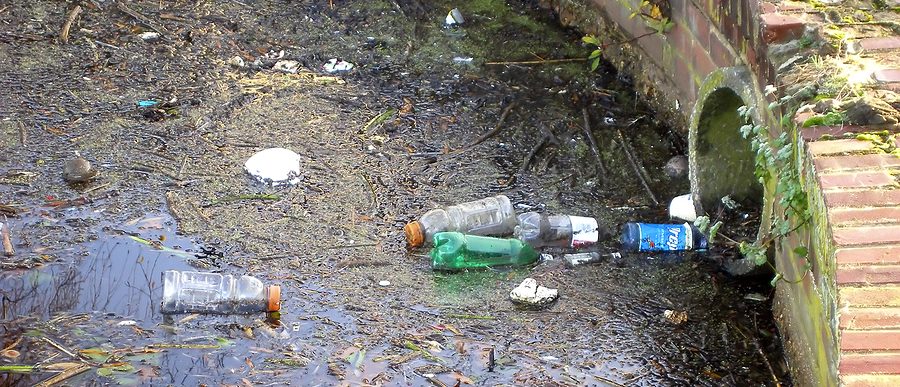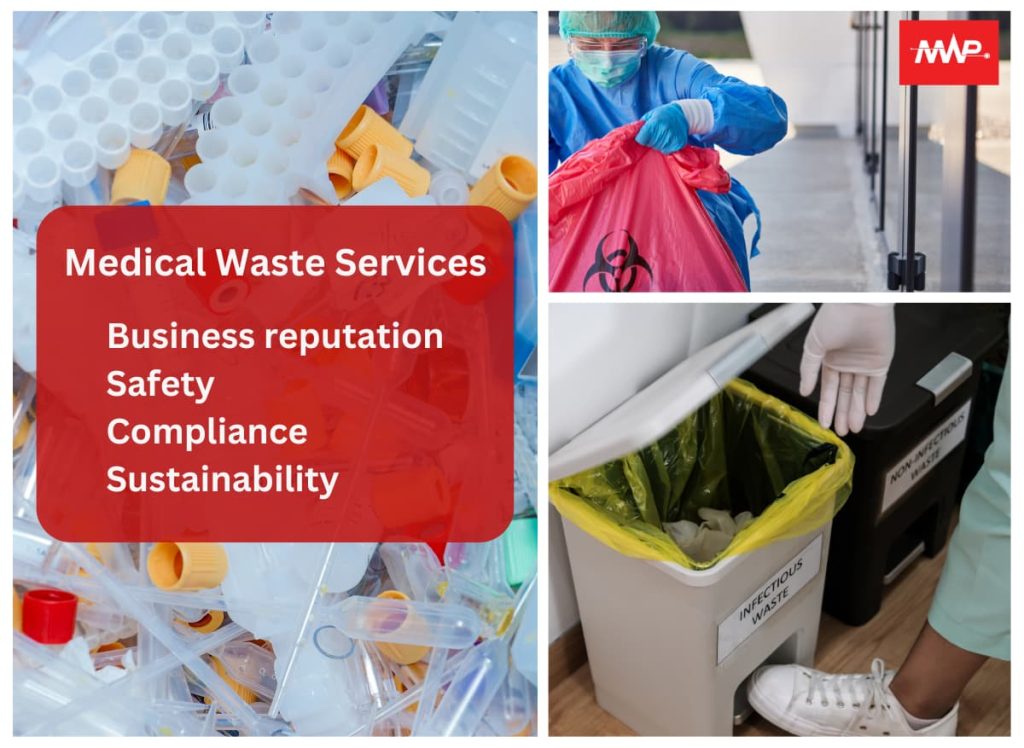Environmental Laws in the Healthcare Industry

Environmental laws in the healthcare industry aim to regulate the environmental impact of healthcare facilities and practices. Medical Waste Pros helps hospitals, surgery centers, businesses, clinics, and more find specialized services that help them reach their sustainability goals. There are seven important regulations that are applicable to the healthcare industry as a whole. States and local governments may have additional standards for facilities to follow.
Environmental Laws and Regulations for Medical Facilities
Resource Conservation and Recovery Act (RCRA)
The Resource Conservation and Recovery Act (RCRA) regulates the handling and disposal of hazardous waste. This includes medical waste generated by healthcare facilities. The act regulates where hazardous waste can be disposed of, sets standards for training about how to handle waste, and explains the proper processes around its storage, disposal, and recycling. Four primary characteristics determine if waste falls under the RCRA hazardous waste designation: ignitability, corrosivity, reactivity, and toxicity. In a medical practice, the waste most likely to possess these components are chemotherapy waste, organs and body parts, bodily tissues from surgery and biopsies, blood and bodily fluids, cultures and microbiological specimens, sharps, and anything that could be contaminated with highly communicable diseases.

Clean Air Act
The Clean Air Act (CAA) regulates air emissions from various sources, including healthcare facilities. It sets standards for air quality and emissions of pollutants such as mercury, nitrogen oxides, and particulate matter. Healthcare facilities, particularly larger ones, may have significant energy consumption and emissions from various operations. Traditional systems such as HVAC, as well as more unique processes such as incineration and sterilization need to be monitored for their emissions into the outside environment as well as indoors. Facilities may need to install pollution control equipment or adopt cleaner technologies to comply with CAA standards.
Clean Water Act
Healthcare facilities are responsible for monitoring their water systems. The Clean Water Act (CWA) regulates the discharge of pollutants into water bodies. It sets standards for wastewater discharge and aims to protect surface water and groundwater quality. Medical facilities generate medical waste, including sharps, infectious materials, and pharmaceuticals. These can pose risks to water quality if improperly managed. The CWA regulates the disposal of medical waste to prevent contamination of surface and groundwater. Facilities need to implement proper waste segregation, storage, treatment, and disposal practices to comply with CWA regulations and protect water resources. Medical facilities also contain chemicals such as cleaning agents and pharmaceuticals that can be extremely harmful to the environment. This act requires facilities to implement spill prevention and response measures, such as secondary containment, leak detection systems, and spill response plans. These minimize the risk of chemical releases and protect water quality.
Toxic Substances Control Act
Chemical management is critical for any medical facility. The Toxic Substances Control Act (TSCA) regulates the manufacture, use, and disposal of toxic substances, including chemicals used in healthcare settings such as certain cleaning agents and pharmaceuticals. TSCA authorizes the EPA to regulate or ban chemicals that pose risks to health or the environment. Healthcare facilities must comply with restrictions and bans imposed on chemicals they use or handle. This law also requires chemical manufacturers, importers, and distributors to provide safety data sheets (SDS) for hazardous chemicals. Facilities and offices must ensure they have access to SDS for the chemicals they use.

Occupational Safety and Health Administration
The Occupational Safety and Health Administration (OSHA) sets standards for workplace safety. These standards address issues such as hazardous chemical exposure, bloodborne pathogens, and employee safety training. SOme key components of these regulations include proper segregation of waste, secure containers, labeling, safe transport, training, and documentation. Any reputable medical waste disposal company should offer a variety of regularly scheduled pick-up options to medical facilities. In addition, they should offer sizes of containers, and supply of red biohazard bags, liners, and boxes. This helps facilities and offices to comply with OSHA.
Emergency Planning and Community Right-to-Know Act
Reporting is an important aspect of running a healthcare facility or office. The Emergency Planning and Community Right-to-Know Act (EPCRA) requires facilities to report the release of hazardous substances to federal, state, and local authorities. It also requires emergency planning for hazardous chemical releases as well as reporting on certain hazardous chemicals stored on-site above threshold quantities. This act keeps communities in the know by granting the public access to information about hazardous chemicals in their local area. Medical Waste Pros can match you with a provider to help follow these guidelines.
The National Environmental Policy Act
The National Environmental Policy Act (NEPA) requires federal agencies, including those involved in healthcare, to assess the environmental impacts of their actions, including construction projects and policy decisions. This is critical for larger medical facilities such as hospitals. Before construction, large facilities may need to conduct an environmental impact, provide forums to the public and stakeholders, perform a mitigation and alternative analysis, and may even need to coordinate with federal bodies.
Contact Medical Waste Pros
Environmental laws in the healthcare industry have been put in place to protect the environment and communities around various facilities. Complying with regulations is crucial for keeping the planet clean, maintaining trust in a community, and keeping a facility open. Medical Waste Pros can match your office, hospital, clinic, or center with highly trusted services that are fully compliant with all relevant laws and regulations. To get started with a comprehensive medical waste management plan today, fill out the form or give Medical Waste Pros a call at (888) 755-6370. Our team can get you multiple free, customized quotes on services and resources in your area.










